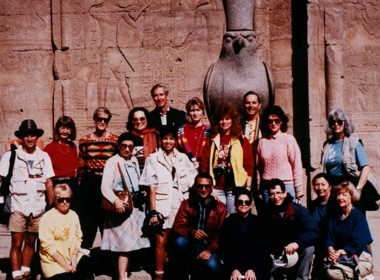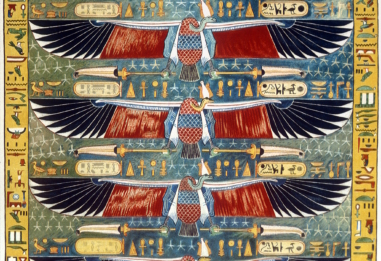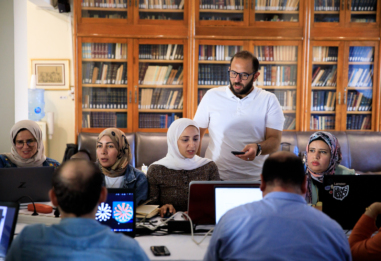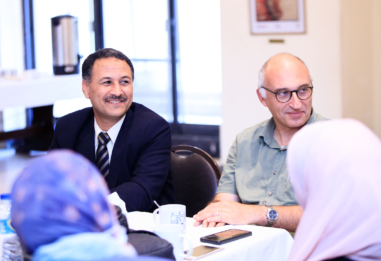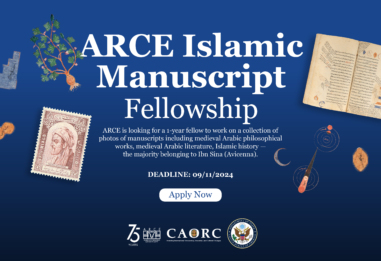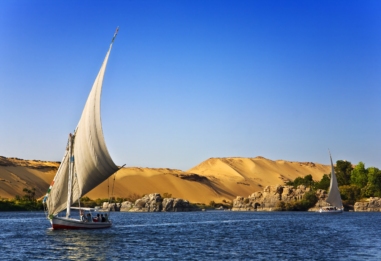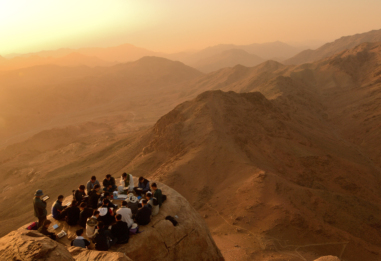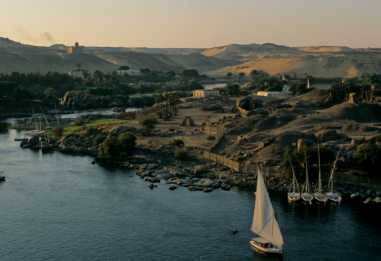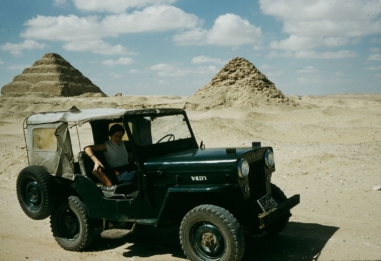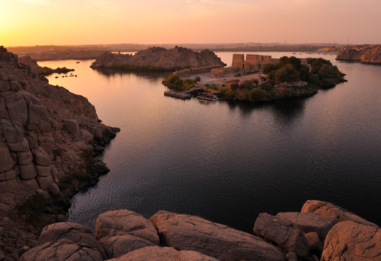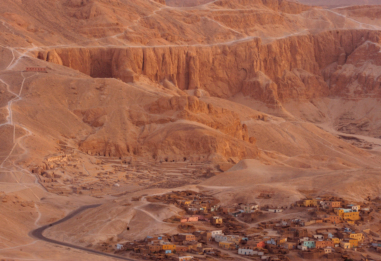Before applying for a fellowship, read this
How long will it take to complete the ARCE application?
Previous applicants have indicated that they set aside 6-8 hours over the span of a week or two to complete the application, not including time for editing and revisions. Reference letters must be requested by January 15, so don’t wait to fill out the application and request the referral letters.
How do I fill out the Ministry of Higher Education English and Arabic Application and Security Forms?
Click on these Tips for Filling out the MOHE forms for assistance in this task.
Does ARCE have a specific format for the research proposal?
ARCE does not require a specific structure for proposals, but key components should include your: 1) guiding research questions, 2) research methodology, 3) a clear thesis statement, and 4) a literature review. The committee is looking for academic achievement and promise. Strong reference letters that speak directly to your research and your capacity to carry it out successfully will support your candidacy.
What if my referrals don’t submit their recommendations on time?
Planning ahead is the best strategy to ensure that your referrals have enough time to write a letter of recommendation. If an emergency arises for one of your referrers and they can’t make the deadline, contact: arcefellows@arce.org immediately and before the submission deadline.
Who can I contact if I have questions about my topic or technical problems filling out the online application?
If you have any questions about the application process, your topic, or technical issues, please contact: arcefellows@arce.org
The ARCE Fellowship Experience
Do all fellows conduct archival research in Cairo? Most fellows conduct archival research in Cairo because the largest number of museums and archives are found there. But fellows conducting site visits to cultural heritage sites travel throughout the country. Frequently visited archives, collections and heritage are sites located in cities like Alexandria, Luxor, Fayoum, and Aswan. Less frequently fellows consult archives or collections in other urban centers such as Port Said, Suez, and Minya.
How long will it take to find an apartment in Cairo?
Most fellows find an apartment before the end of their first week in Cairo; others at the end of their first day. Cairo Scholars is a favored site for finding roommates. Some fellows also rent long-term using Airbnb or by contacting local rental agents. It should be noted that ARCE has no official ties to any of these platforms or agencies, and that fellows are expected to select and arrange their accommodation independently.
How affordable is living in Cairo/Egypt?
Like the rest of the world, prices have increased considerably in Egypt since the invasion of Ukraine in early 2022. Egypt is one of the largest importers of Ukrainian wheat. Still, the majority of ARCE’s fellows find living in Cairo to be very affordable. Monthly per diem is more than adequate to live comfortably. Vegetables and fruit are inexpensive, and Egypt produces a wide range of dairy products, snack foods, and beverages. Imported products are also widely available. There is a variety of restaurants featuring everything from local Egyptian fare to sushi to Indian to standard fast-food chains. While restaurant prices have soared in recent years, it’s still relative when compared to U.S. prices. There’s certainly something for every budget, occasion, and appetite!
What do fellows do when they aren’t chasing down their research?
With pandemic restrictions lifted, nightlife in Cairo has resumed. There is a thriving music, art, and café scene that many fellows seek out after work hours. Local neighborhood gyms and wellness centers are also very common. The Red Sea and Alexandria are just a few hours from Cairo and offer a chance to leave the city and enjoy a change of scenery for a weekend or more. And then of course there are Egypt’s incredible monuments and heritage sites to visit!
I have a structured exercise routine. How will I keep this up?
Good luck! Running outdoors is challenging. Many neighborhoods have local gyms, sometimes segregated by gender, that are affordable. There are also international chains located across Cairo, like Gold’s Gym. Swimmers can purchase pool memberships at major international hotels. Other groups that fellows commonly join include the Maadi Runners, Cairo Runners and Cairo Cyclists Club.
My research requires I visit collections and archives outside of Cairo, is that possible?
Absolutely. Fellows may travel to other urban centers by train, private driver, or air for several days or weeks at a time. If requested, ARCE will assist fellows in organizing these visits.
Several of the archaeological sites I want to visit for my research are slightly off the beaten track. How do I arrange getting there?
ARCE staff will help you to organize this. If we don’t have contacts in the area you are visiting, we will consult one of our Research Supporting Member (RSM) expeditions to help identify local contacts. Additionally, we will refer you to the local Ministry of Antiquities inspectorate.
What kind of support does ARCE offer?
In addition to financial support, ARCE staff is always available to advise and guide you in your research and in navigating the ins and outs of life in Egypt. ARCE provides personal introductions, letters of introduction, recommendations about how to pace or plan your research, where to get mobile and Internet services, apartment hunting tips, information on doctors and hospitals, and pretty much any other information you might need while living and researching in Egypt. In addition, the fellows’ cohort meets monthly to discuss research challenges and successes. Fellows are also invited to give and attend lectures and special events at the center.
What do fellows do after their fellowships end?
Fellows usually return to their universities to complete their dissertations, resume classroom teaching or continue their sabbatical. A large number of dissertation and postdoctoral fellows leave Egypt for follow-on fellowships. Recent fellows have been awarded fellowships with the Andrew Mellon Foundation, the Metropolitan Museum of Art, the Institute for Middle East Studies, the Institute for Advanced Study (Princeton), and the Historians of Islamic Art Association.
